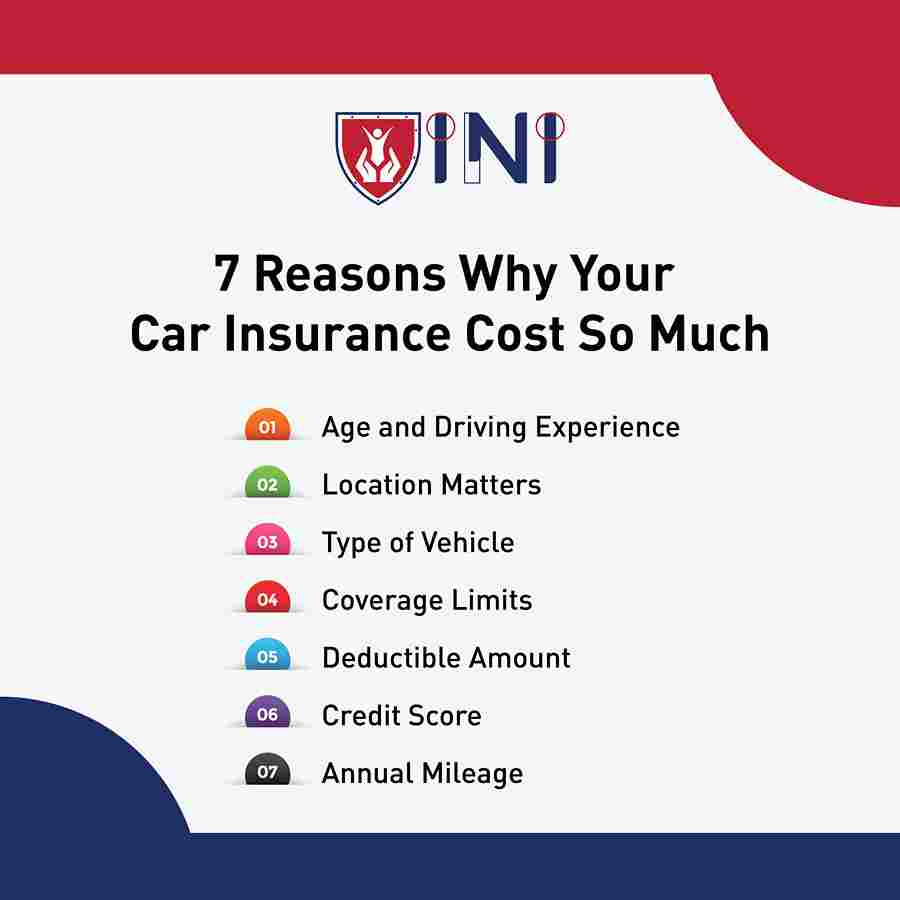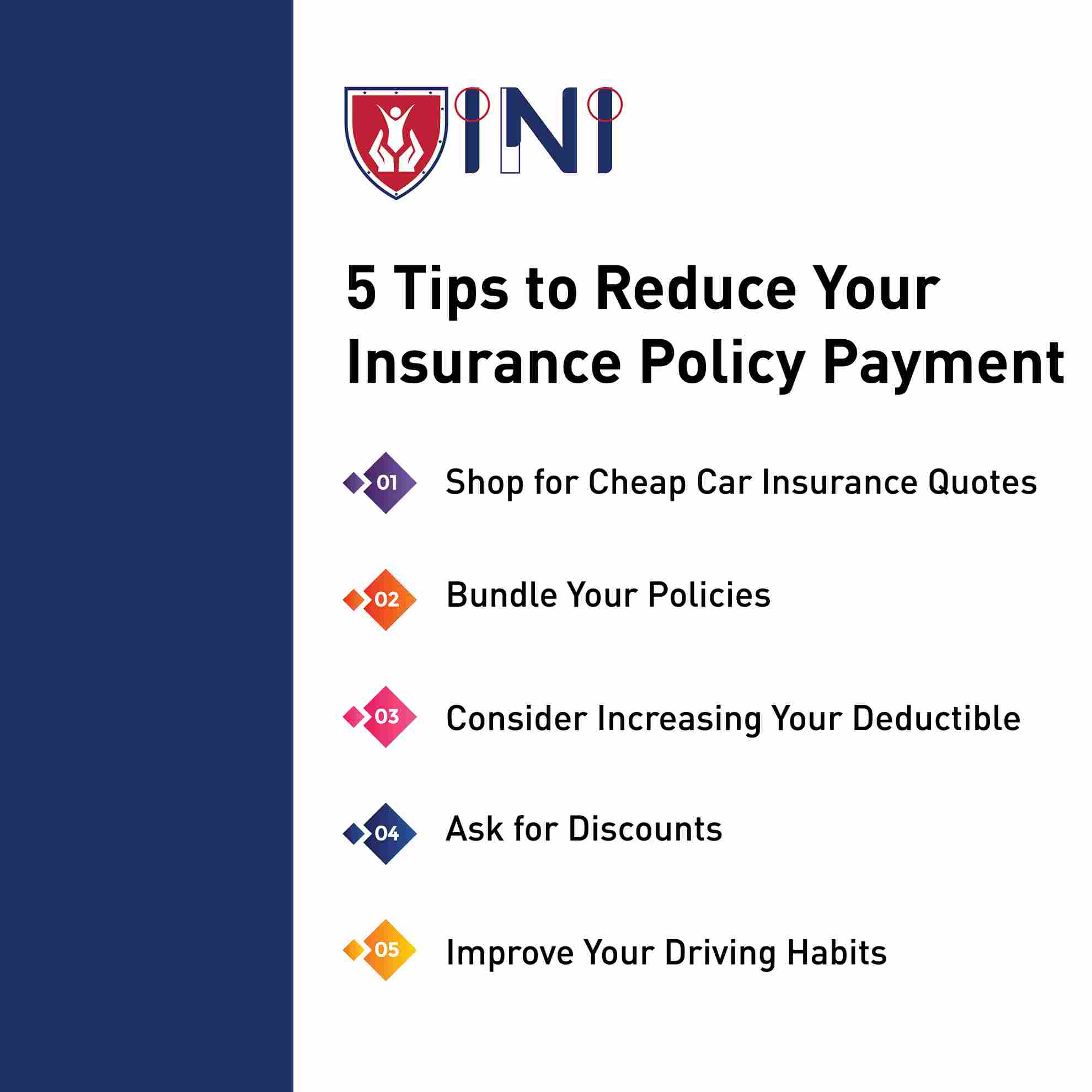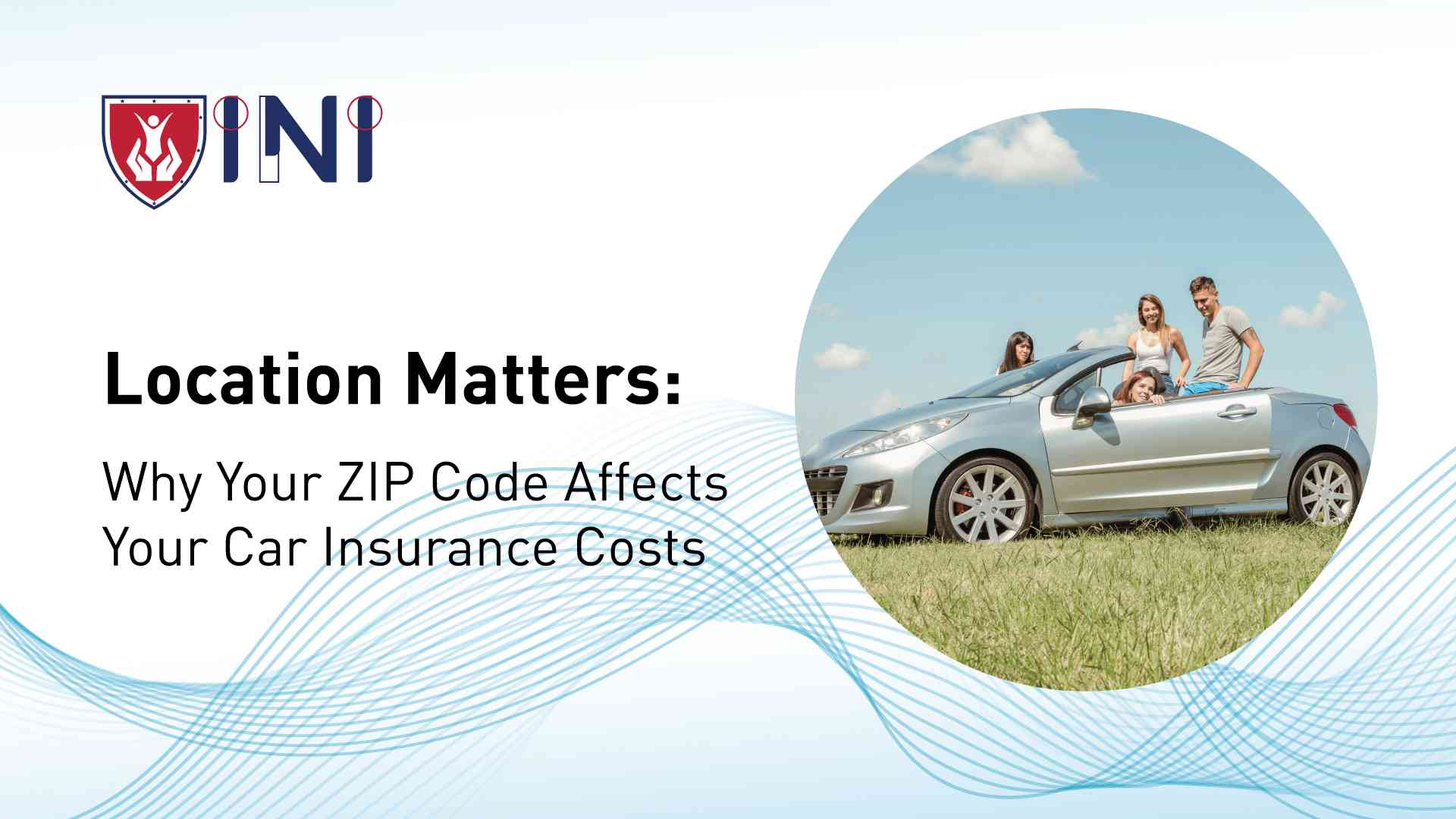7 Hidden Reasons Your Car Insurance Costs So Much: Slash the Expense Now!
If you're like most drivers, you've probably noticed a steady rise in your auto insurance premium recently as compared to previous years, leaving you wondering why it's costing you more and more to stay on the road. While some factors influencing insurance rates may be obvious, there are numerous hidden reasons that contribute to the skyrocketing expenses.
In this blog post, we'll have a look at the most overlooked factors that affect your car insurance premium. From the impact of your credit score on insurance rates to the surprising effect of your ZIP code, we'll untangle the mysteries behind the numbers, equipping you to make informed decisions about your coverage.
Exploring the Impact of Driving Record Accidents
Let's face it- accidents happen, and they can significantly impact your car insurance costs. Driving record accidents can have far-reaching consequences for both individuals and society as a whole. From personal financial burdens to broader societal issues, understanding the consequences of driving record accidents is essential for promoting road safety and responsible driving behaviors.
Here's a record showing how different types of driving incidents can affect your premiums -
| Driving Record | No Accidents | Minor Accidents | At-fault Accidents | Speeding Tickets |
|---|---|---|---|---|
| Impact on Premium | Lowers premium | Slightly increases premium | Significantly increases premium | Increases premium |
7 Reasons Why Your Car Insurance Cost So Much

-
Age and Driving Experience: Young and inexperienced drivers are statistically more likely to be involved in accidents, resulting in higher premiums. If you're a new driver or have recently obtained your license, your insurance costs might be steeper.
-
Location Matters: If you live in an area with high traffic density and a history of accidents, your premium might be higher than those in less congested or safer neighborhoods.
-
Type of Vehicle: High-performance and luxury vehicles are more expensive to insure due to their expensive repair costs and increased risk of theft.
-
Coverage Limits: While higher coverage limits provide better protection, they also lead to higher premiums. Consider your needs carefully and strike a balance between sufficient coverage and manageable costs.
-
Deductible Amount: A deductible is the amount you must pay out of pocket before your insurance kicks in. Opting for a lower deductible can lead to higher premiums, so evaluate your financial situation to choose a deductible that works for you.
-
Credit Score: Surprisingly, your credit score can affect your car insurance premium. Insurance companies believe that individuals with better credit scores are more responsible and, therefore, less likely to file claims. Keeping your credit score in good shape can help lower your premium.
-
Annual Mileage: The more you drive, the higher the chances of accidents. If you have a long commute or frequently take road trips, your insurance company might consider you at higher risk, leading to higher premiums.
Yet, the question remains: how can we overcome these issues? Let's analyze some foolproof approaches to minimize the expenditure on your premiums.
Here are 5 Tips to Reduce Your Insurance Policy Payment

-
Shop for Cheap Car Insurance Quotes: Don't settle for the first quote you receive! Shop around and compare rates from different insurance providers to find the best deal. Online comparison tools make this process a breeze and can potentially save you hundreds of dollars.
-
Bundle Your Policies: Many insurance companies offer discounts if you bundle multiple policies, such as car and home insurance, with them. Consolidating your insurance needs under one provider can lead to significant cost savings.
-
Consider Increasing Your Deductible: As mentioned earlier, opting for a higher deductible can lower your premium. If you have an emergency fund to cover unexpected expenses, raising your deductible might be a smart move.
-
Ask for Discounts: Insurance companies offer various discounts, but they might not always proactively inform you about them. Don't hesitate to ask your provider about available discounts, such as safe driver discounts, good student discounts, or discounts for safety features in your car.
-
Improve Your Driving Habits: Maintaining a clean driving record can lead to lower premiums over time. Practice safe driving, avoid speeding tickets, and attend defensive driving courses to improve your driving skills and qualify for potential discounts.
Wondering the Worth of Money Spent on Car Insurance
Some of you might wonder if investing in car insurance is worth the expense. Let's break it down! Car insurance provides financial protection in case of accidents, theft, or damages to your vehicle. Without insurance, you'd be liable for all the expenses out of pocket, which could be devastating for your finances. Moreover, most states require a minimum level of car insurance coverage to legally operate your vehicle. So, it's not just about saving money; it's about safeguarding your financial well-being and complying with the law.
Final Thoughts
We can conclude by saying that understanding the underlying factors that contribute to your high car insurance costs is crucial in taking control of your financial burden and slashing expenses. As you would have explored the seven hidden reasons mentioned above, you can now make informed decisions to reduce your premiums significantly.
Make sure to review your coverage and consider adjusting it to suit your needs better. Next, maintain a clean driving record by being cautious on the road and attending defensive driving courses. Additionally, take advantage of potential discounts offered by insurers for bundling policies or installing safety devices in your vehicle.
Did you find this article helpful? Share it!







